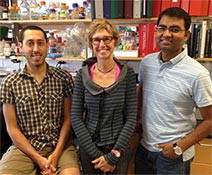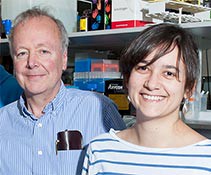RSRT-funded Study Shows Gene Therapy Can Reverse Rett Symptoms in Mice
To profoundly impact a disorder with as many varied and debilitating symptoms as Rett Syndrome, it is likely that intervention must be directed toward the very root of the problem. There are several ways to do this: activate the silent back-up copy of the Rett gene; target modifier genes; explore gene therapy.
Today, we announce a study funded through the MECP2 Consortium suggesting that gene therapy may indeed provide a feasible approach to treat Rett Syndrome.

The work was led by Gail Mandel at Oregon Health and Sciences University in collaboration with Adrian Bird of the University of Edinburgh and Brian Kaspar of Nationwide Children's Hospital.

In the past sixty days, four key papers have been published detailing research advances supported financially and intellectually by RSRT. Three of those papers are funded through the MECP2 Consortium, a unique alliance launched by RSRT in 2011 among three leading labs: Bird, Greenberg (Harvard) and Mandel. If you are a donor to RSRT, the accelerated research these projects represent is the result of your money at work.
We wish to express our gratitude to all of our generous supporters and the parent organizations that make this progress possible. Special thanks to our funding partners, the Rett Syndrome Research Trust UK and the Rett Syndrome Research & Treatment Foundation.
Below are some resources to help you understand today's announcement.
Video interview with Dr. Mandel & lab members:


